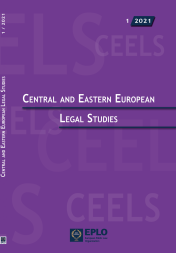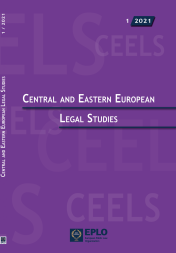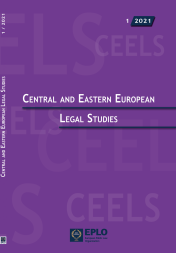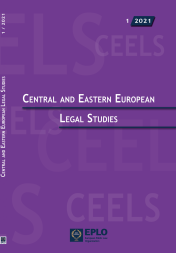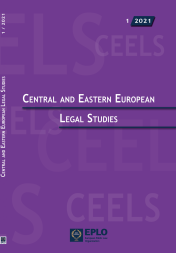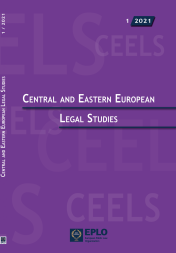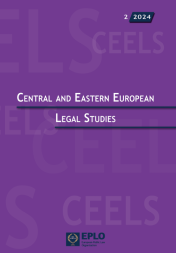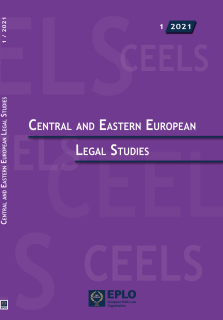
CENTRAL AND EASTERN EUROPEAN LEGAL STUDIES 1/2021
The first issue of the year 2021 of the Central and Eastern European Legal Studies starts by a paper arguing, by drawing on the Hungarian and Polish experiences from 1990, that, even in illiberal constitutionalism, informal constitutional amendments agreed by the constituted powers lead to a legitimate and even desirable change to the constitutional system – from the actual illiberal regime’s perspective. It is proposed in this paper that this process is informed by illiberalism. The second article aims to investigate and examine the European Union’s strategy for peacemaking and peacekeeping in an area not accepted or recognized by it, based on further studies on the Post-Soviet secessionist entities, missionary documents and official statements and legal acts of the organization. The following article, starting from the premise that the regular flow of democracy and elections has been disturbed by the extraordinary circumstances and the enactment of emergency measures due to the COVID-19 pandemic, and focusing on the Central and Eastern Europe, a region where populism is on the rise, compares the main aspects of the elections held during the first seven months of the pandemic in Serbia, Croatia, Poland, North Macedonia and Montenegro, such as the political context, voter turnout, the results of incumbents and the safety measures taken to operate the elections. The following article deals with academic freedom, starting from Greece and citing an example that shows a missed opportunity concerning the protection of liberty of religious consciousness in education. The notion of academic freedom and its limits is also examined in the European Convention on Human Rights and in the case law of the Strasbourg Court. The continuity of the concept of academic freedom over time is observed. The following article deals with the clinical legal education in V4 countries, which is not a new methodology in legal training at law schools. In fact, every Visegrad country operates a legal clinic program: An overview of the clinical legal education in the Czech Republic, Poland, Hungary, and Slovakia is given, by pointing out at the end that the sign of the globalization of the clinical movement is the creation of GAJE and ENCLE. Last but not least, in an article coming from Lithuania the author discusses public finance activities as a field of activity of the State (municipality). Public finance activities in the article are understood as organizing the activities of the competent state and municipal institutions and other authorized entities in the formation, distribution and use of public funds and supervision of these processes for the purpose of financially ensuring general (public) needs (interests) and public authority functions. The article focuses as well on the analysis of the activities of institutions responsible for public finances, primarily the Ministry of Finance.
Summary
B. Szőke-Kis, Non-recognition and Engagement – The European Union’s Stance on the Post-Soviet Secessionist Entities [IN ENGLISH]
L. Petrovszki-Oláh, Elections in East-Central Europe during the COVID-19 Pandemic [IN ENGLISH]
M. Kampitsi, The Core of the Right to Education: The Academic Freedom [IN FRENCH]
R. Kálmán, Clinical Legal Education in V4 Countries [IN ENGLISH]
B. Sudavičius, Public Finance as a Field of Activity of the State [IN LITHUANIAN]















